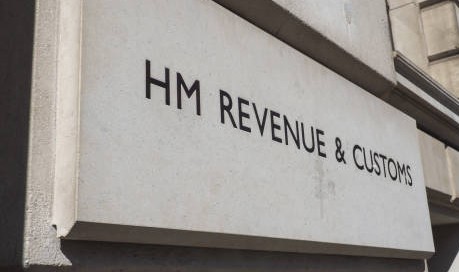
A Costly Administrative Mistake: HMRC Loses Inheritance Tax Appeal Due to Procedural Error
Here’s an important update on a recent case involving HMRC and a deathbed tax planning scheme. This case highlights the impact of procedural errors on tax appeals and the importance of accuracy when dealing with HMRC.
The Case of The Jennifer Fleet Trust (JFT)
The appeal centred around the estate of Jennifer Fleet, who, just eight days before her death, set up a discretionary trust called The Jennifer Fleet Trust (JFT) in an attempt to avoid inheritance tax (IHT). The trust’s trustee was Bourse Trustee Company Limited (BTCL), and the beneficiaries were Fleet’s sons, Luis and Nicholas Carvajal, who also served as the executors of her estate.
To fund the trust, BTCL took out a loan of £1.4 million, which was used to purchase bonds. These bonds were then distributed equally between Fleet’s two sons. To back the loan, Jennifer Fleet provided a guarantee for BTCL’s liabilities, covering the loan amount, interest, and any associated costs. The loan was to be repaid within one month of Fleet’s death.
When filing the Inheritance tax return, the Carvajal brothers included the £1.4 million guarantee as a liability, effectively reducing Fleet’s estate to below the nil rate band of £325,000. This manoeuvre meant that no inheritance tax was initially payable on her estate.
HMRC’s Challenge and Strong Start
HMRC challenged this arrangement, bringing the case before the First-tier Tribunal (FTT). They argued against the deduction on three grounds:
- No Actual Liability: HMRC contended that since the beneficiaries had agreed to cover the guarantee, it was unlikely to be called in, and therefore, it wasn’t a liability of Fleet’s estate at the time of her death.
- Chargeable Lifetime Transfer: HMRC suggested that if the guarantee were called in, it should be considered a chargeable lifetime transfer of value of £1.4 million.
- Subrogation Rights: They argued that Fleet had rights of subrogation, which would allow her to recover the £1.4 million from the trust should she have had to fulfill the guarantee. This right, they claimed, constituted property that was part of her estate at her death.
Initially, HMRC’s case seemed strong, with a high likelihood of succeeding in disallowing the tax deduction.

The Administrative Error That Changed Everything
However, HMRC’s case unraveled due to a significant administrative error. Unbeknownst to Amanda Benson, the HMRC officer handling the case, the beneficiaries had applied for a certificate of discharge. This certificate, which was issued erroneously by HMRC, indicated that there were no liabilities arising on death for Inheritance tax purposes. Critically, it protected the Carvajal brothers from any liabilities related to Fleet’s death, thereby invalidating HMRC’s first and third arguments.
With this certificate in hand, the beneficiaries were shielded from the majority of HMRC’s claims. Consequently, HMRC was forced to rely solely on its weakest argument — that the guarantee represented a chargeable lifetime transfer.
Tribunal’s Decision: No Lifetime Transfer
The FTT examined the remaining argument and determined that the guarantee did not constitute a lifetime transfer of value for inheritance tax purposes. This finding meant that the arrangement, flawed as it was, technically prevented the application of Inheritance tax under the grounds presented.
Impact of HMRC’s Error
The tribunal’s decision was heavily influenced by HMRC’s procedural mistake. Without the erroneously issued clearance certificate, the tribunal indicated that HMRC’s case would have likely succeeded. The error effectively led to a loss of nearly £600,000 in potential tax revenue.
The judge in the case underscored the severity of HMRC’s mistake, stating that the arrangements did not actually reduce the value of Mrs. Fleet’s estate for Inheritance tax purposes due to her subrogation rights. He further emphasised that had the clearance certificate not been issued, HMRC would have been able to pursue its stronger arguments successfully.
Lessons Learned
This case serves as a stark reminder of the importance of accurate administration and procedural diligence when handling tax matters. For taxpayers and their representatives, it’s a reminder that while tax planning is a legal right, it must be done within the bounds of the law, and any schemes must withstand scrutiny based on technical and procedural grounds.
For HMRC, this case highlights the need for meticulous attention to detail in their processes. Administrative errors not only cost revenue but also undermine the integrity and effectiveness of the tax system.

At K2 Accountancy Group, we are dedicated to helping our clients navigate complex tax landscapes and ensure compliance with all relevant laws and regulations. If you have questions about inheritance tax or need advice on tax planning, please don’t hesitate to reach out to our team. Stay tuned to our social media pages for more updates and insights on key tax developments.
Latest Articles
Autumn 2025 BudgetUpcoming Changes to UK Audit Regulations: What You Now Need to KnowEU Implements New Digital Measures for VAT Compliance. Growing Pains Ahead?International Trade Week Presents New Opportunities and Training for BusinessesBudget 2024 Summary: Key Tax Changes and Challenges for Businesses and Individuals
